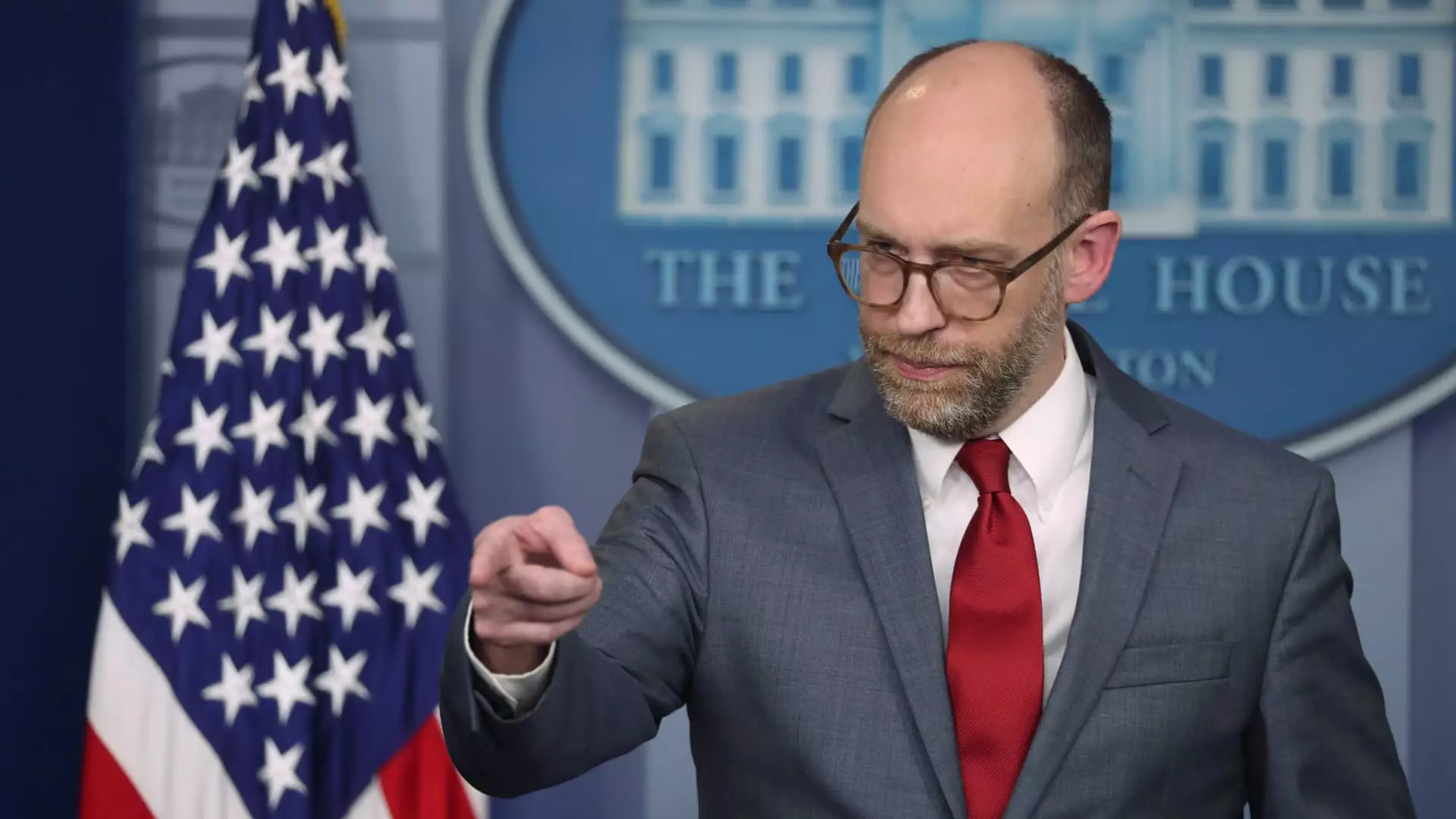The abrupt changes at the Consumer Financial Protection Bureau (CFPB) have sent shockwaves through the financial landscape, raising pressing questions about the agency’s future and its fundamental mission. Recent developments indicate a potential winding down of operations and a broader attack on the bureau’s very existence, as new leadership implements drastic shifts in policy.
Remote Work and Agency Shutdowns
In a communication issued on Sunday, CFPB employees were instructed to work from home due to the closure of their Washington, D.C., headquarters until mid-February. This memo, authored by Chief Operating Officer Adam Martinez, follows an unsettling directive from newly appointed acting CFPB director Russell Vought. The message from Vought mandated the suspension of nearly all regulatory activities, including the oversight of financial institutions. Such a suspension not only disrupts the agency’s daily functioning but also signals a severe shift in its operational ethos.
Compounding these issues are the reported activities of operatives associated with Elon Musk’s organization, DOGE. It has been revealed that these external actors now have access to critical CFPB data, including sensitive employee performance reviews. This leads to significant apprehensions regarding the integrity of the CFPB and its staff, who now face an uncertain work environment fraught with risk and intimidation. Musk’s previous statements suggesting the termination of the CFPB add a layer of complexity to an already fraught situation.
In addition to freezing regulatory activities, Vought’s actions extend to fiscal measures; he announced a halt to the agency’s funding flow. Publicly termed as a move to eliminate “unaccountability,” this freeze raises alarms about the agency’s capability to fulfill its intended role. A significant reduction in funding, especially when coupled with operational shutdowns, could render the CFPB ineffective during a critical period when consumer protection is paramount.
Uncertain Employment Landscape
Employees within the CFPB find themselves in a precarious position as fears mount regarding potential layoffs or administrative leave. With around 1,700 positions at the bureau, only a limited number are mandated by law, creating an environment ripe for instability. The parallels drawn to the actions taken within U.S. Agency for International Development under previous administrations adds a historical context to the fears currently held by CFPB staff.
Consequences for Consumer Protection
Should mass layoffs or further operational paralysis occur, the implications for consumer protection could be dire. The CFPB was established as a direct response to the catastrophic fallout of the 2008 financial crisis, with the mandate to safeguard consumers against the predatory practices of financial institutions. A rollback of the bureau’s capabilities could undo years of progress in regulating unfair practices, particularly concerning exorbitant fees associated with credit cards and overdrafts. The dissemination of medical debts into credit reports—a burden affecting millions—is another critical regulatory effort that could be jeopardized.
Facing Opposition
Historically, the CFPB has been a target for criticism from banking trade groups, which have alleged that its practices are unnecessarily harsh. They have pursued legal avenues to challenge the bureau’s authority with limited success, but the emergence of new leadership under Vought may revive these battles. The outcome of these ongoing conflicts will have significant implications for consumers, especially those vulnerable to financial exploitation.
The Path Forward
The current situation at the CFPB represents a crossroads for consumer financial protection in the U.S. The initial steps taken by the new acting director signal a potentially significant shift away from the bureau’s foundational purpose. As employees brace for further developments, there is an urgent need for public discourse around consumer protection, agency accountability, and safeguarding the rights of American citizens within the financial system. The fate of the CFPB and the protections it offers hinges on the collective response from the public, lawmakers, and advocacy groups, as they navigate this uncertain and critical juncture.
The CFPB is at a critical juncture marked by unprecedented disruptions. While the immediate future appears unsettling, the responses from various stakeholders will be crucial in shaping the landscape of consumer financial protection in America.

